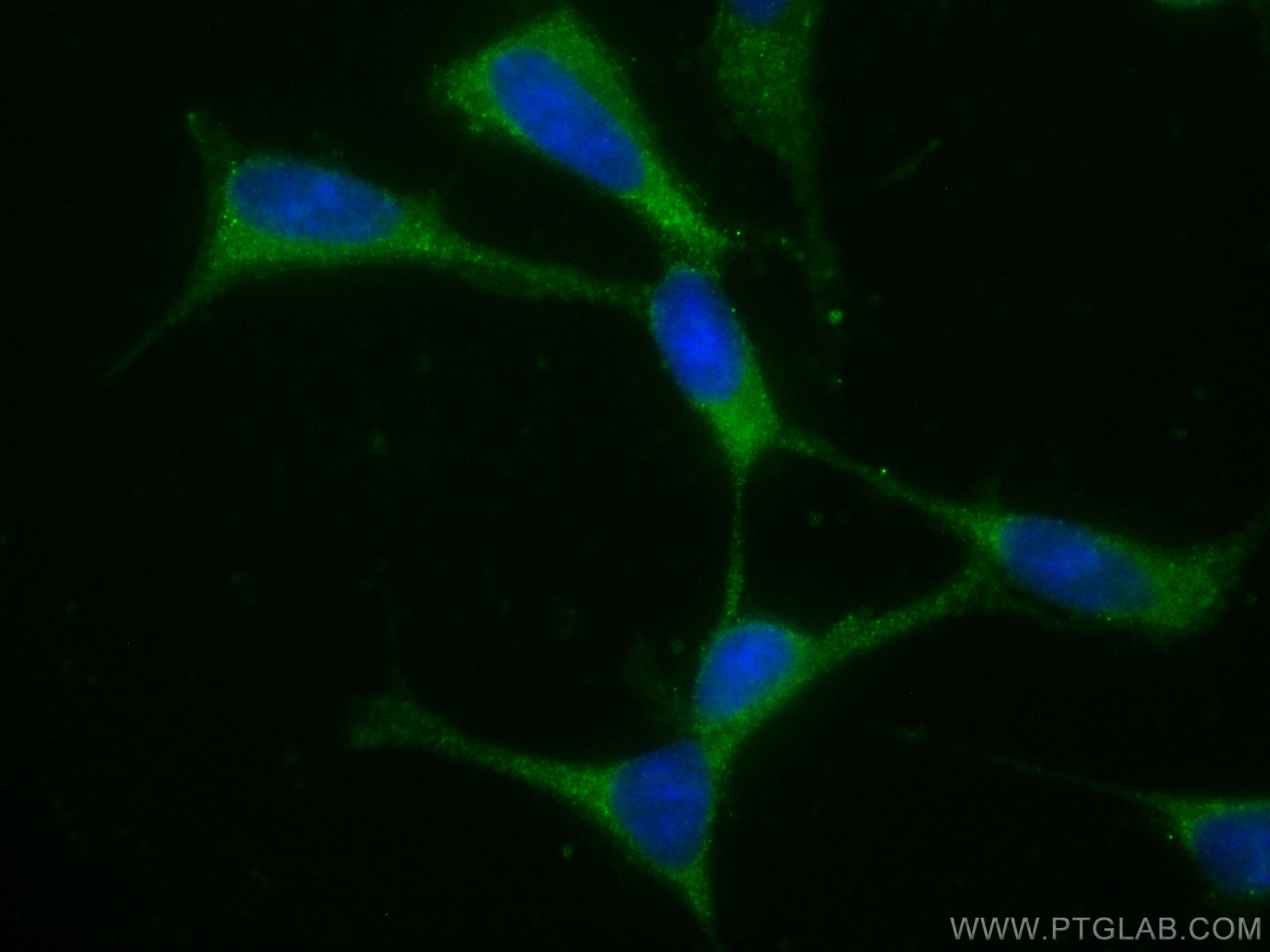Anticorps Polyclonal de lapin anti-Huntingtin
Huntingtin Polyclonal Antibody for IF
Hôte / Isotype
Lapin / IgG
Réactivité testée
Humain, souris
Applications
IF
Conjugaison
CoraLite® Plus 488 Fluorescent Dye
N° de cat : CL488-27206
Synonymes
Galerie de données de validation
Applications testées
| Résultats positifs en IF | cellules SH-SY5Y, |
Dilution recommandée
| Application | Dilution |
|---|---|
| Immunofluorescence (IF) | IF : 1:50-1:500 |
| It is recommended that this reagent should be titrated in each testing system to obtain optimal results. | |
| Sample-dependent, check data in validation data gallery | |
Informations sur le produit
CL488-27206 cible Huntingtin dans les applications de IF et montre une réactivité avec des échantillons Humain, souris
| Réactivité | Humain, souris |
| Hôte / Isotype | Lapin / IgG |
| Clonalité | Polyclonal |
| Type | Anticorps |
| Immunogène | Huntingtin Protéine recombinante Ag25922 |
| Nom complet | huntingtin |
| Masse moléculaire calculée | 348 kDa |
| Numéro d’acquisition GenBank | NM_002111 |
| Symbole du gène | HTT |
| Identification du gène (NCBI) | 3064 |
| Conjugaison | CoraLite® Plus 488 Fluorescent Dye |
| Excitation/Emission maxima wavelengths | 493 nm / 522 nm |
| Forme | Liquide |
| Méthode de purification | Purification par affinité contre l'antigène |
| Tampon de stockage | PBS avec glycérol à 50 %, Proclin300 à 0,05 % et BSA à 0,5 %, pH 7,3. |
| Conditions de stockage | Stocker à -20 °C. Éviter toute exposition à la lumière. Stable pendant un an après l'expédition. L'aliquotage n'est pas nécessaire pour le stockage à -20oC Les 20ul contiennent 0,1% de BSA. |
Informations générales
HTT(huntingtin), also named as HD and IT15, belongs to the huntingtin family. HTT may play a role in microtubule-mediated transport or vesicle function. Defects in HTT are the cause of Huntington disease (HD) which is an autosomal dominant neurodegenerative disorder characterized by involuntary movements (chorea), general motor impairment, psychiatric disorders and dementia.
Protocole
| Product Specific Protocols | |
|---|---|
| IF protocol for CL Plus 488 Huntingtin antibody CL488-27206 | Download protocol |
| Standard Protocols | |
|---|---|
| Click here to view our Standard Protocols |


